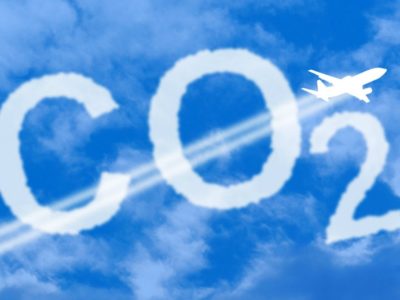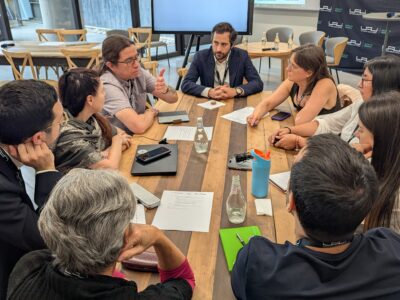UCLA Sustainable Technology and Policy Program (STPP): New interdisciplinary program of UCLA Schools of Law and Public Health
The UCLA Sustainable Technology and Policy Program (STPP) has just launched its new website. STPP is an interdisciplinary program based in the UCLA School of Law and the School of Public Health, with partners and affiliated faculty across the UCLA campus. The program’s goal is to promote public health and environmental protection by developing and promoting hazard identification methodologies, alternatives analysis techniques, and innovative chemicals policies to advance the use of safer chemicals and chemical processes throughout the marketplace. My UCLA Law colleague Tim Malloy is the faculty director of the program.
STPP brings together an innovative team of policy experts, faculty members and scientists in the fields of sustainable technology, public health, law, and economics. As part of this work, Tim, along with his STPP colleagues and several law students, has affected chemical policy in California and beyond. For example, Tim has drafted chemical policy regulations for the State of California; met with Congressional staffers to advise on reform of regulation of toxic chemicals; participated in a federal Centers for Disease Control and Prevention workgroup to evaluate chemical exposures and chemical management and identify methods and policies for reducing these exposures; and served on California’s Green Ribbon Science panel.
STPP is a great addition to our existing UCLA Law environmental law and policy programs, which include the Emmett Center on Climate Change and the Environment, and the UCLA Environmental Law Center (which includes both our Evan Frankel Environmental Law and Policy Program and our Frank G. Wells Environmental Law Clinic).
Here’s a very brief rundown on those programs:
Our Emmett Center on Climate Change and the Environment is the nation’s first law school center focused exclusively on climate change. It is housed within UCLA School of Law and works across disciplines to develop and promote research and policy tools useful to decision-makers locally, statewide, nationally and beyond.The Emmett Center is dedicated to creating and advancing law and policy solutions to the climate change crisis and to training the next generation of leaders to address this crisis. It focuses on issues relating to climate law and policy, including both mitigation (reducing greenhouse gas concentrations in the atmosphere) and adaptation (coping with whatever climate change is inevitable despite our best mitigation efforts).
Our Evan Frankel Environmental Law & Policy Program examines the institutions and processes that shape environmental decisionmaking and policy implementation. It work has included sponsoring research and symposia on topics including disasters and environmental law, implementation and interpretation of the California Environmental Quality Act, and regulation of the environmental impacts of nanotechnology.
Finally, the Frank G. Wells Environmental Law Clinic trains our future environmental leaders by providing opportunities for students to obtain hands-on experience in environmental law and policy, working directly with nonprofit environmental advocacy groups. The Clinic has put students and faculty to work on legal matters in collaboration with nonprofit and government partners in California and across the country. Our recent clinic work has included a successful challenge to a coal mining permit that would have consolidated two coal mines on Hopi land into one mining operation and set the stage for future mining activities on the site, as well as several briefs in the California Supreme Court.







Reader Comments